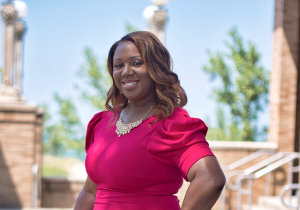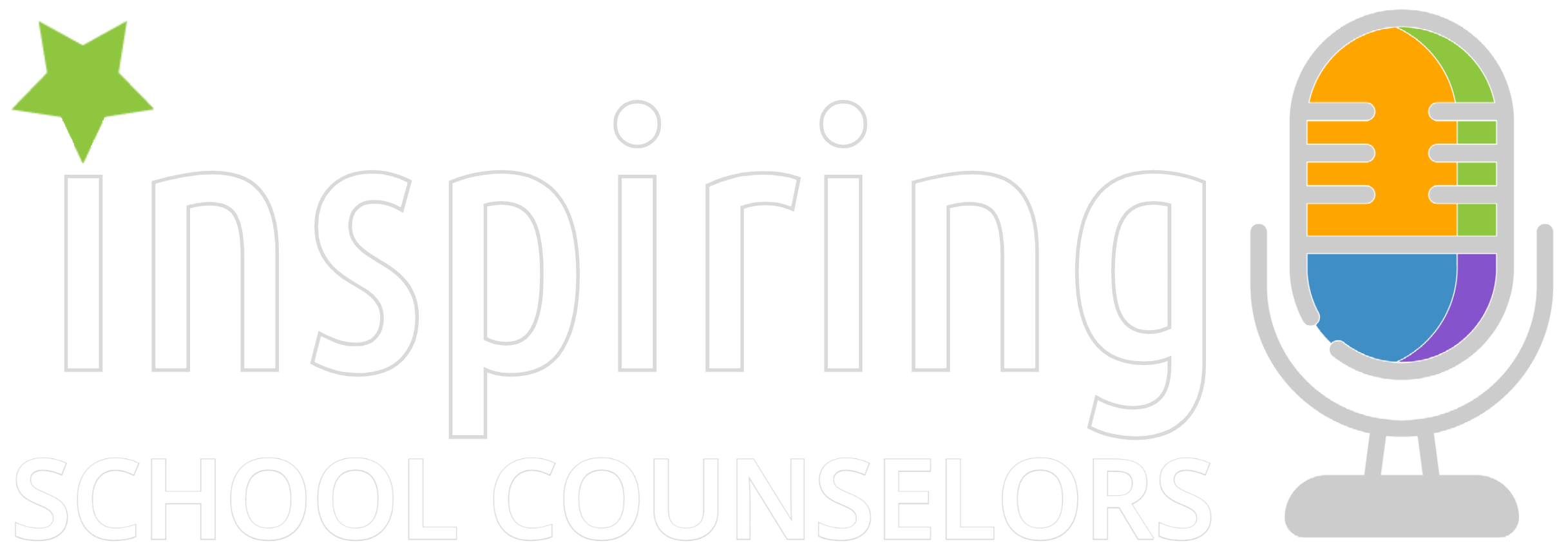School counselors’ work in helping students succeed is magnified when other organizations collaborate in providing families with information and motivation. Learn how the non-profit organization Catisha Coates-Toney has created is doing just that.

This Week's Storyteller
 Catisha Coates-Toney has over 15 years in K-12 and higher education experience and previously served as the Regional Director of College and Career Advising at Lighthouse College Prep. Catisha is now the Executive Director of C.O.A.T.E.S., a non-profit focused on helping more students prepare for and succeed in college. You can follow C.O.A.T.E.S on Facebook.
Catisha Coates-Toney has over 15 years in K-12 and higher education experience and previously served as the Regional Director of College and Career Advising at Lighthouse College Prep. Catisha is now the Executive Director of C.O.A.T.E.S., a non-profit focused on helping more students prepare for and succeed in college. You can follow C.O.A.T.E.S on Facebook.Share YOUR Story!
 Do you have a touching or funny (or both) story about school counseling? We want to hear it! Drop us a line or record your story with our online Sound Booth.
Do you have a touching or funny (or both) story about school counseling? We want to hear it! Drop us a line or record your story with our online Sound Booth.
If you have questions or need help, let us know!
Subscribe
Encouraging Words for School Counselors is also available on these podcast apps and others. If you can’t find the podcast on your favorite app, let us know and we’ll make sure we get there. If you prefer to listen in your browser, visit https://inspiresuccess.org/podcast every week for a new episode. For new episode notifications and more, follow Inspire Success on Facebook, Instagram, or Twitter.
Transcript
Matt Fleck:
Hi, everyone, and welcome back to Encouraging Words for School Counselors! I’m Matt Fleck with Inspire Success.
For the last eight years, Catisha Coates-Toney has been working primarily with African-American high school students to help prepare them for college. Much of this work has been centered around encouraging students – many of them first-generation college goers – to start earning dual college credits before graduating from high school. And her work has been tremendously successful.
Catisha Coates-Toney:
One of the students at the school I was working at, recently I was able to get him his first job. He graduated, two years, went to Purdue — and this was Purdue West Lafayette, you know, the main campus, you know, a lot of people have that discrepancy. “Oh, was it the theater campus or was it the main campus? The main campus. So he actually went two years, got his degree, came back and I was able to help him get hired. So I was helping him to help him to get his degree and his associates, and then also to give him his first job. So that’s really BA for me, and I’m really proud of that. And I’ve been able to, I think it’s about 25 kids now that I’ve been able to do that with across the last six or seven or eight years, been able to see them graduate with their associates degree and actually go to school. And those credits really transfer
Matt:
The secret is really no secret, says Catisha, it’s about making sure students and their parents have the critical information they need that links students’ high school efforts with what they plan to do in college.
Catisha:
I think the most important piece of that is making sure that the students and the parents are knowledgeable about the classes they’re taking and how they will transfer. I think that that is the piece. I think a lot of times you have people having dual credit courses, they may not understand. So understanding how they transfer, which ones will and will not. And how that looks in terms of selecting your actual majors. That’s really important. So being knowledgeable and understanding and walking the student, and again, I always say the parent — incorporating the parents into it. Um, that’s one piece that I’m proud of too, is keeping those lines of communication open.
Matt:
As much as information is critical, Catisha says motivation may be just as important or more. And sadly COVID has made that challenge even harder.
Catisha:
I would say even before that is still the importance of motivation for students. I think that the younger generation needs a little more push, um, a little more motivation. It’s much harder trying to provide college support online, especially if students can kind of go “shoo,” you know, [laughs] if they don’t want to talk to you, they don’t have to. As opposed to when you were in school, I can get you from a class and say, come and see me. I think that it is more difficult. I think it’s going to be a much harder task and even looking at data, you’re seeing the numbers kind of decreasing in terms of the amount of people who are going off to college. So I think the need is extreme at this point. I think it’s one of those, “it takes a village,” you know, a family of people and a family of community organizations and schools to help support the learning loss that we’re gonna experience.
Matt:
It’s exciting when students develop that internal motivation to succeed, but, of course, many of us know that that motivation has to come sometimes from external sources. Usually that’s counselors and parents, but not always. Recently, Catisha had a first generation student who was admitted to a state college – with a full ride scholarship – and although the student and her father were enthusiastic and ready to go, when it came to Mom, not so much. Until Catisha encouraged the student, her Dad AND her Mom – to actually VISIT the college campus – which made all the difference to mom.
Catisha:
She felt much more confident once she was able to experience the campus and see what it was like because she, this, this student was a first generation college student. So the mother had never been to college. So she needed to go and experience it. But again, I think that’s stressing the importance of having family involvement. If her daughter just said, “I’m going to Bloomington,” and I didn’t encourage her to go and participate in the events that they had, she probably wouldn’t have let her go. So having that importance of communication, saying, “Just go ahead and go down there,” encouraging the parents to be more involved in that college application process, I think it’s more important for specifically underserved or first-generation families because they don’t know what you’re sending them to. You know, more people are able to say, “Go to college,” because they’ve experienced it. When you haven’t experienced it, it’s the unknown. So encouraging them to participate in that college application process, in the visits, speaking with the admission reps — it will bring more encouragement and more support from the family, which is what that student will need in the end.
Matt:
Catisha herself is a first generation college goer and the first college graduate in her family. But unlike the previous student, Catisha’s parents were actually enthusiastic.
Catisha:
They were excited. So they did go down to all the events with me as well, though. So being a part of the process. So as a first-generation student, I knew why it was so important for parents to go because my parents were more excited when they were able to go and visit the campus. Like, “Oh my God, this is a beautiful campus. Oh, it seems really good. It seems like a lot of opportunity.” They were more vested than I was. And that actually helped me to stay in school. Cause I struggled. I struggled a lot my first semester — my first year, actually, of school. I felt like I wasn’t academically prepared, so it was really hard for me to find my way in terms of how to be successful in school. And I didn’t have family who had experienced it to give me the steps.
It was encouragement, like, “You have to stay,” but that was kind of my grit. And my encouragement was I didn’t want to go back home because my parents were so excited for me to be in schoo, I couldn’t quit. And so I think that adds to a first-generation student as well to have your family vested in what you’re trying to do is going to make that push you to do more to stay and to not give up, because you know, people give up and people leave their first year or they don’t come back. When you have that family to say, “No, you need to stick with it. What else can you do?” to give you that motivation, you’re more likely to stay.
Matt:
Catisha’s nonprofit continues that family spirit of providing both INFORMATION and MOTIVATION to college-going high school students in and around Gary, Indiana, where she’s located. For the second year in a row, Catisha’s non-profit is offering summer workshops to help students to brush up on their math and English skills, understand their financial aid package, and pick up an “off to college bag” full of goodies to help make that first year college a little easier.
By the way, Catisha is also the newest board member to our nonprofit called Inspire Success, where you can find other Encouraging Words for School Counselors podcasts at inspiresuccess.org/podcast, where you can also find a way for YOU to share a story or two about your experiences as a school counselor. We’d love to hear from you.
Thanks, Catisha, and thanks for listening. Until the next time, have a great week!
